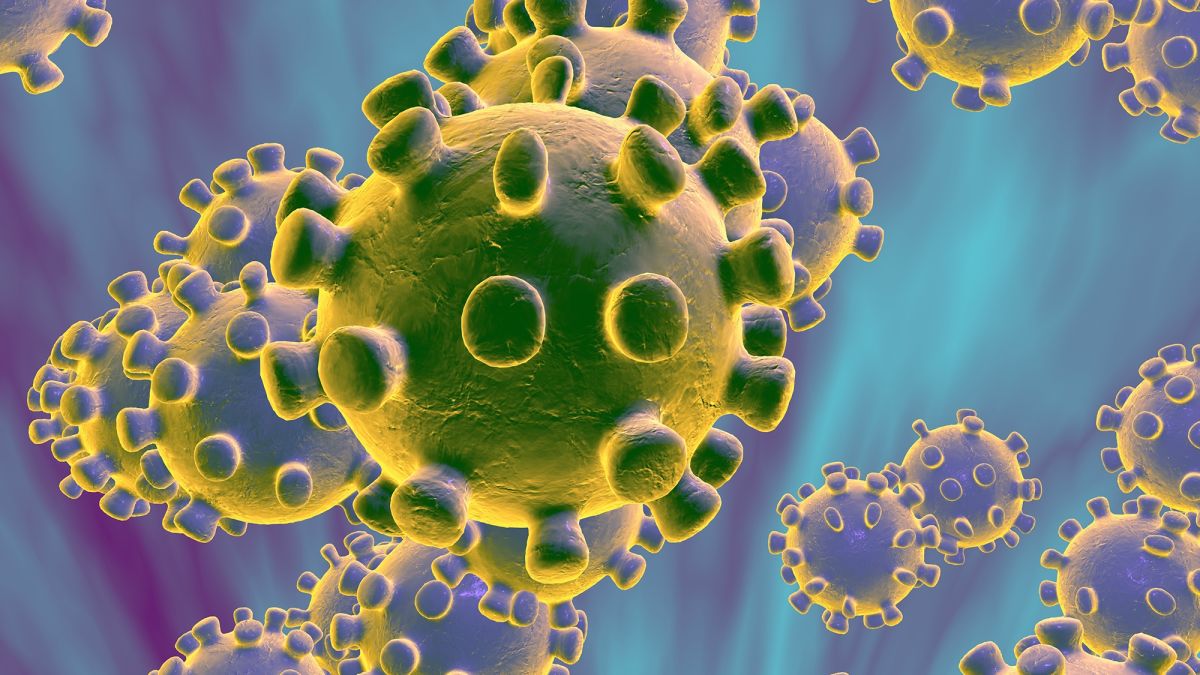When on December 31 2019, China alerted the World Health Organisation (WHO) to several cases of pneumonia in Wuhan, little did the world know that the newly discovered monster will go on to claim over a thousand lives and spread like wildfire in less than one month of discovery.
These, indeed, are not the best of times for the world. In Australia, months of raging fire has left at least 28 people dead, about 3,000 homes destroyed, 499,621 hectares (1.23 million acres) of land burned and up to 1 billion animals affected.
In same Australia, a torrential rainfall, that has brought major flooding, damaging winds and dangerous surf, with severe thunderstorms forecast for the coming days, is currently on.
There are more distress signs across our ailing globe, as terrorists’ activities seem to have regained renewed momentum. In Nigeria, the dreaded Boko Haram group has sustained its murderous and insane acts with renewed intensity, leaving in its trail sorrows, tears and blood. Really, the whole of West, Central and East Africa are contending with the threat of one insurgency group or the other.
As if that is not enough, the monstrous Lassa fever plague resurfaces, killing scores of people across the African continent in almost same speed as the ray of light.
TNG in this special report examines in detail; the causes, symptoms, diagnosis, and treatment of the twin monster diseases starting with Lassa fever.
Lassa fever
What is Lassa fever?
According to a popular health journal, medicalnewstoday.com, Lassa fever was first discovered in Nigeria, when two missionary nurses became ill with the virus in 1969. Its name is derived from the village of Lassa, where it was first documented.
Lassa fever is a viral infection carried by the multimammate rat Mastomys natalensis (M. natalensis).This is one of the most common rodents in equatorial Africa, found across much of sub-Saharan Africa.
Lassa fever mainly occurs in Sierra Leone, Liberia, Guinea, and Nigeria. However, the Mastomys rat is common in neighboring countries, so these areas are also at risk.
The virus is hemorrhagic in nature, meaning it can cause bleeding, although eight out of every ten people with the virus have no symptoms. If it affects the liver, kidneys, or spleen, it can be fatal.
Rough estimates suggest there are between 100,000 and 300,000 cases of Lassa fever each year in West Africa, and approximately 5,000 deaths due to the disease.
In some areas of Liberia and Sierra Leone, 10 to 16 percent of all hospital admissions are due to Lassa fever, indicating a serious and widespread impact in those areas.
In 2015, a person returning from Liberia to the U.S. received a diagnosis of Lassa fever. International travel has increased the risk of diseases spreading from one country to another.
Fast facts on Lassa fever
- Lassa fever causes around 5,000 deaths per year.
- It is spread through the feces and urine of the multimammate rat (Mastomys natalensis).
- It is most common in Sierra Leone, Liberia, Guinea, and Nigeria.
- Symptoms are varied and include pulmonary, cardiac, and neurological problems.
Causes
Once a Mastomys rat is infected with the virus, it can excrete the virus in its feces and urine, potentially for the rest of its life.
As a result, the virus can spread easily, especially as the rats breed rapidly and can inhabit human homes.
The most common method of transmission is by consuming or inhaling rat urine or feces. It can also be spread through cuts and open sores.
The rats live in and around human habitation, and they often come into contact with foodstuffs. Sometimes people eat the rats, and the disease can be spread during their preparation.
Person-to-person contact is possible via blood, tissue, secretions or excretions, but not through touch. Sharing needles may spread the virus, and there are some reports of sexual transmission.
Lassa fever can also be passed between patients and staff at poorly equipped hospitals where sterilization and protective clothing is not standard.
Symptoms
Symptoms generally appear within 6 to 21 days after infection occurs.
An estimated 80 percent of infections do not produce significant symptoms, although there may be a general malaise, headache, and a slight fever.
In the remaining 20 percent of cases, Lassa fever becomes serious.
Symptoms can include:
- bleeding in the gums, nose, eyes, or elsewhere
- difficulty breathing
- a cough
- swollen airways
- vomiting and diarrhea, both with blood
- difficulty swallowing
- hepatitis
- swollen face
- pain in the chest, back, and abdomen
- shock
- hearing loss, which may be permanent
- abnormal heart rhythms
- high or low blood pressure
- pericarditis, a swelling of the sac that surrounds the heart
- tremors
- encephalitis
- meningitis
- seizures
In around 1 percent of all cases, Lassa fever is fatal, and around 15 to 20 percent of all hospitalizations for the disease will end in death.
Death can occur within 2 weeks after the onset of symptoms due to multiple organ failure.
One of the most common complications of Lassa fever is hearing loss, which occurs in around 1 in 3 infections.
This hearing loss varies in degree and is not necessarily related to the severity of the symptoms. Deafness caused by Lassa fever can be permanent and total.
It is particularly dangerous for women in the third trimester of pregnancy. Spontaneous loss of pregnancy occurs in around 95 percent of pregnancies.
Diagnosis
The symptoms of Lassa fever vary widely, and diagnosis can be difficult.
Clinically, the disease can resemble other viral hemorrhagic fevers, including the Ebola virus, malaria, and typhoid.
The only definitive tests for Lassa fever are laboratory-based, and the handling of specimens can be hazardous. Only specialized institutions can conduct these tests.
Lassa fever is generally diagnosed by using enzyme-linked immunosorbent serologic assays (ELISA). These detect IgM and IgG antibodies and Lassa antigens.
Reverse transcription-polymerase chain reaction (RT-PCR) can also be used in the early stages of the disease.
Treatment
Rehydration and treatment of symptoms can improve the chances of survival if there is an early diagnosis.
Prescribed early, the antiviral drug ribavirin has proven useful in fighting Lassa virus, but how it works remains unclear.
However, access to ribavirin in the areas worst affected by the Lassa virus is limited. Additionally, ribavirin may be toxic and teratogenic, meaning it can cause mutations. For this reason, it is not a perfect solution.
Ribavirin is not useful for preventing Lassa fever before it occurs, and there is currently no vaccine for this disease.
However, work on a vaccine is underway, and some drugs are showing promise.
An article published in The Lancet in April 2018 notes that the Coalition for Epidemic Preparedness Innovations (CEPI) and Themis Bioscience are collaborating on developing the Lassa vaccine through phase II clinical trials, and that research and development on the vaccine will be accelerated.
Other treatment focuses on relieving symptoms and maintaining body function.
This includes managing fluid levels, electrolyte balance, oxygenation, and blood pressure.
Prevention
The main focus of prevention is “community hygiene,” to control the rat population.
This includes:
- regular hand-washing
- storing foods in rodent-proof containers
- keeping garbage away from the home
- keeping pet cats
- avoiding blood and other bodily fluids when caring for sick relatives
- following safe burial procedures
- using protective equipment in a healthcare setting, including masks and eyewear
The Mastomys rat is so widespread that it cannot realistically be eradicated. As a result, the main aim is to avoid these rodents and prevent them from sharing human habitation.
The World Health Organization (WHO) and other organizations work to raise awareness in areas where Lassa fever is a threat.
Coronavirius
The Corona Virus was first reported to have spread out at mainland China last December. Several cases of the virus were reported in Wuhan, a port city of 11 million people in the central Hubei Province of China. Several of those infected worked at the city’s Huanan Seafood Wholesale Market.
The virus easily spreads when in proximity to an infected person. It also spreads through inhaling droplets generated when victim coughs or sneezes.
Just in one day, about 242 people reportedly died from the virus in Hubei, the Chinese province where the disease originated from. That fatality figure is the highest daily toll since the outbreak, thus raising the death toll to 1,367 as at the time of writing this piece.
Hubei province and its capital Wuhan where the infection, now known as COVID-19, is thought to have originated also reported more than 14,800 new cases of the infection, after adopting new clinical methods to diagnose the virus.
Now, the number of infected people across China stands at 59,805. Frightfully, no known cure yet in sight to combat the virus that is surging across the globe like wild fire. At least 25 countries have confirmed cases of the virus, while several nations have evacuated their citizens from Hubei, China. Till date, three deaths have been recorded outside mainland China, one in Hong Kong, another in the Philippines and the most recent in Japan.
In the United States, the Centers for Disease Control and Prevention (CDC) has confirmed the 15th case of the coronavirus in the country, saying the person is under federal quarantine at an airbase in Texas. It is the first person under quarantine at the airbase among a group of people that arrived from China on February 7 who had symptoms and tested positive for the disease, the CDC said.
Japan has also reported its first coronavirus death. According to the country’s, Health Minister, Katsunobu Kato, the victim is an 80-year-old woman living in Kanagawa prefecture, which borders on Tokyo.
In Singapore, 8 new cases have been reported, thus bringing the total tally in that country to 58. Of the 58 confirmed cases reported, 15 have recovered and been discharged from the hospital, while seven are in intensive care.
Malaysia has also confirmed 19 cases. According to reports, a Chinese national became the 19th person in Malaysia to be infected with the virus. The 39-year-old woman arrived Malaysia with four other people from Wuhan, China, on January 25. She is the daughter of the 16th coronavirus victim, and a friend of the 14th victim.
A cruise ship, Diamond Princess, has been quarantined for days in Yokohama, Japan, with new cases of the virus confirmed on board. On board the ship are 3,400 anxious passengers and crew, who reports say are getting sick of their precarious situation, even as fear of possibly infecting one another heightened.
Precisely, how the coronavirus has been spreading aboard the ship is just one of the many mysteries of the plague. Japan’s health authorities have announced 44 new coronavirus cases from the ship, raising the total to 218. Counting those from the vessel, total cases in Japan have surpassed 250, the most of any country other than China.
Meanwhile, the World Health Organization (WHO) has warned the virus poses a “grave threat” to the world, with Tedros Adhanom Ghebreyesus, WHO chief, saying the virus could have “more powerful consequences than any terrorist action”.
What is a coronavirus?
Coronaviruses are a large family of viruses that cause illnesses ranging from the common cold to more severe diseases such as severe acute respiratory syndrome (SARS) and Middle East respiratory syndrome (MERS), according to the WHO.
They circulate in animals and some can be transmitted between animals and humans. Several known coronaviruses are circulating in animals that have not yet infected humans.
The new coronavirus has been named COVID-19. It is the seventh coronavirus known to affect humans.
What are the symptoms?
Common signs of infection include fever, coughing and breathing difficulties.
In more severe cases, the infection can cause pneumonia, SARS, kidney failure and death.
The incubation period of the new coronavirus is thought to be between one and 14 days. The virus is contagious before symptoms appear.
Infected patients can also be asymptomatic, meaning they do not display any of the symptoms above, despite having the virus in their systems.
How many people are affected?
In mainland China, 1,016 people have died and at least 42,638 have been infected, according to official figures.
The Philippines and Hong Kong have each reported one death.
Elsewhere, cases have been confirmed in Australia, Belgium, Cambodia, Canada, Finland, France, Germany, Hong Kong, India, Italy, Japan, Macau, Malaysia, Nepal, the Philippines, Russia, Singapore, South Korea, Spain, Sri Lanka, Sweden, Taiwan, Thailand, the United Arab Emirates, the United Kingdom, the United States and Vietnam.
How many people are affected?
In mainland China, 1,016 people have died and at least 42,638 have been infected, according to official figures.
The Philippines and Hong Kong have each reported one death.
Elsewhere, cases have been confirmed in Australia, Belgium, Cambodia, Canada, Finland, France, Germany, Hong Kong, India, Italy, Japan, Macau, Malaysia, Nepal, the Philippines, Russia, Singapore, South Korea, Spain, Sri Lanka, Sweden, Taiwan, Thailand, the United Arab Emirates, the United Kingdom, the United States and Vietnam.
Where did it come from?
China alerted the WHO to several cases of pneumonia in Wuhan on December 31.
The new coronavirus is thought to have originated in a seafood market, where wildlife was also sold illegally.
On February 7, Chinese researchers said the virus could have spread from an infected animal species to humans through illegally-trafficked pangolins, which are prized in Asia for food and medicine.
Scientists have pointed to either bats or snakes as the original source of the virus.
What’s happening in China now?
Efforts to contain the outbreak have caused major disruption in China, with at least 20 cities facing travel restrictions, affecting at least 60 million people.
More than a dozen countries have evacuated their citizens from Wuhan, while others have banned entry to Chinese citizens. Scores of major airlines have suspended flights to and from China.
On February 10, an advance WHO team of experts arrived in China to investigate the coronavirus outbreak.
Should I worry? And how can I protect myself?
The WHO declared a global health emergency over the virus, on January 30.
A United Nations agency, the WHO defines an international emergency as an “extraordinary event” that constitutes a risk to other countries and requires a coordinated international response.
The WHO has since said that it is too early to say whether the virus has peaked.
People are being urged to follow local safety measures.
WHO recommends basic hand hygiene such as washing hands with soap and water, and making sure to cover your mouth with your elbow when sneezing or coughing.
Maintain “social distancing” – keeping at least one metre (three feet) between yourself and other people – particularly if they are coughing and sneezing, and avoid touching your face, eyes and mouth with unwashed hands.
Avoid unnecessary, unprotected contact with animals and be sure to thoroughly wash hands after contact.
Ensure meat consumed is cooked thoroughly.



![[TNG Health Tips] Living in dangerous times: Early symptoms, treatment and other things you need to know about Lassa Fever, Coronavirus](https://thenewsguru.ng/wp-content/uploads/2020/02/coronavirus.jpg)

